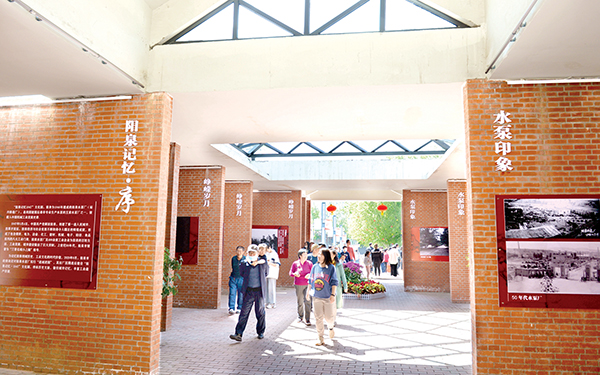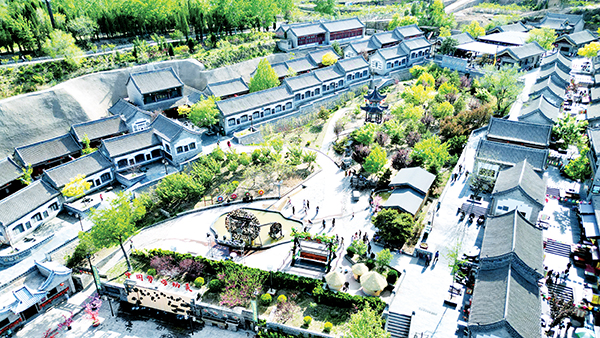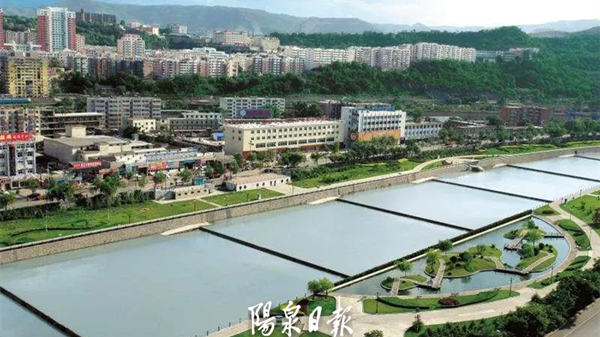Yangquan tourism recovers over May Day holiday

Tourists visit Yangquan Memory·1947 Cultural Park on May 1. [Photo/Yangquan Daily]
Yangquan in North China's Shanxi province received more than 600,000 tourist visits and generated 18.08 million yuan ($2.61 million) in tourism revenue during this year's May Day holiday from April 29 to May 3, up 12.39 times and 6.5 times, respectively compared with the holiday last year.
The city's 17 A-rated scenic areas received 251,900 visits and saw tourism revenue of 9.69 million yuan, representing a year-on-year increase of 462.33 percent and 304.73 percent, respectively. The city's rural areas received 348,100 visits and achieved tourism revenue of 8.39 million yuan.

Tourists tour around a rural scenic area in Yangquan on April 30. [Photo/Yangquan Evening News]
Tourists travelled mainly by car around Yangquan, and Cangshan Mountain, North China Yifeng Ecological Park, Niangzi Pass, Hongyan Peak, and some rural tourist attractions were popular among tourists.
To attract tourists, Yangquan cultural tourism departments and tourism enterprises launched a number of several activities to benefit visitors. Local Yuxian county, for example, arranged free express buses for the coming visitors travelling between local scenic areas and rural attractions, which offered tourists discounted admission tickets.

Visitors entertain in an amusement park in Yangquan on April 30. [Photo/Yangquan Evening News]
During the holiday, scenic areas in the city also launched creative activities for tourists.
Niangzi Pass scenic area staged a special live drama show called Meet Niangzi Pass, combining local natural scenery, cultural and historical elements. These cultural and historical elements enhanced the tourists' tourism experience, and promoted immersive and interactive tourism business development.
The tourism boom over the holiday was partially thanks to the preparation and organization of the city's cultural and tourism authority.
The authority strictly implemented the 24-hour duty mechanism, updated information and reminders online and offline, and arranged special personnel to inspect the operation of travel agencies, A-rated tourist attractions, and cultural relics sites, so as to maintain tourist market order.





